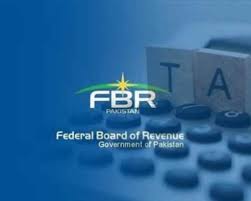Tax implications of company registration in Pakistan
If you are planning to start or expand your business in Pakistan, you may be wondering about the tax implications of company registration in Pakistan. Registering your company with the government of Pakistan can offer you several benefits, such as limited liability protection, tax deductions, enhanced credibility, ease of ownership transfer, and fundraising. However, it also comes with certain obligations and requirements that you need to be aware of. In this blog post, we will provide you with an overview of the tax implications of company registration in Pakistan.
Types of companies and tax rates
According to the Companies Act 2017, there are different types of companies that can be registered in Pakistan, such as public limited company, private limited company, single member company, foreign company, etc. Each type of company has its own advantages and disadvantages, depending on your business needs and goals.
The tax rates applicable to different types of companies vary depending on their status and income. According to the Pakistan Tax Summaries 2023 by PwC , the revised federal corporate tax rates on taxable income (for tax year 2022, 2023 and onwards) are as follows:
types of companies and their tax rates:
Company type| Tax rates
1-Banking company :39%
2-Public company (other than banking company):29%
3-Any other company: 29
4-Small company:20%
A public company is a company listed on any stock exchange in Pakistan or one in which not less than 50% of the shares are held by the federal government or a public trust. A small company is a company that meets certain criteria, such as having paid-up capital and reserves not exceeding PKR 25 million, employees not exceeding 250, annual turnover not exceeding PKR 250 million, etc.
In addition to the above tax rates, a super tax is also imposed on companies with income exceeding PKR 150 million at varying rates depending on their income slabs and sectors. For banking companies, super tax is payable at a rate of 4% irrespective of income slabs for tax year 2022. For certain sectors, such as airlines, automobiles, beverages, cement, chemicals, cigarettes, tobacco, fertilizers, iron & steel, LNG terminals, oil marketing, oil refinery, petroleum, gas exploration and production, pharma, sugar and textile, an enhanced super tax rate of 10% (instead of 4%) is applicable for a single year.
A resident company is taxed on its worldwide income. Non-resident companies operating in Pakistan through a branch are taxed on their Pakistan-source income attributable to the branch at rates applicable to a company.
Tax benefits for women enterprises and SMEs
The government of Pakistan has introduced some tax incentives for women enterprises and small and medium enterprises (SMEs) engaged in the manufacturing sector.
A women enterprise is a start-up established on or after 1 July 2021 by women. A company whose 100% shareholding is held or owned by women shall be subject to tax at a reduced rate of 25% on its profit and gains derived from business chargeable to tax under the heading ‘income from business’. However, this benefit is not available to a business that is formed by the transfer, reconstitution, reconstruction or splitting up of an existing business .
An SME is defined as a person who is engaged in manufacturing and whose business turnover in a tax year does not exceed PKR 250 million. An SME is required to register with the FBR on the IRIS web portal or the Small and Medium Enterprises Development Authority (SMEDA) on its SME registration portal. A company covered by the definition of an SME will not qualify as a ‘small company’. An SME is subject to tax at a reduced rate of 20% on its profit and gains derived from business chargeable to tax under the heading ‘income from business’.
Registration requirements
To register your company for income tax purposes in Pakistan, you need to follow certain steps and provide certain information.
An individual, a company and an association of persons (AOP) or foreign national shall be treated as registered when they are e-enrolled on the Iris portal. E-Enrollment with FBR provides you with a National Tax Number (NTN) or Registration Number and password .
A non-resident company not having permanent establishment in Pakistan shall furnish the following particulars :
– Name of company
– Business address in the foreign country
– Name and nationality of directors or
